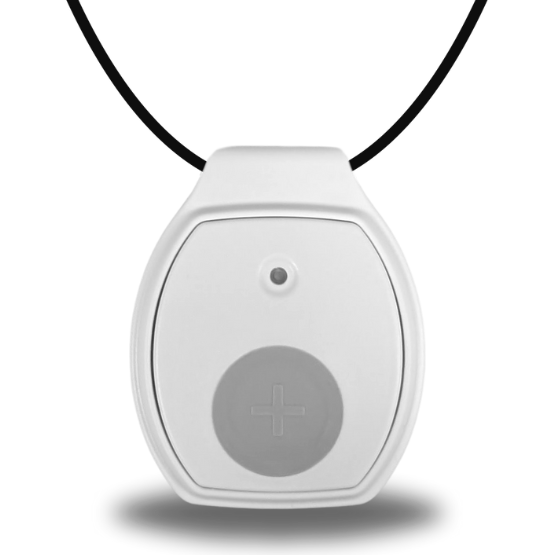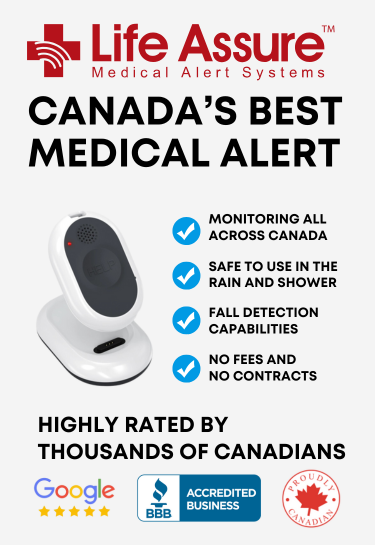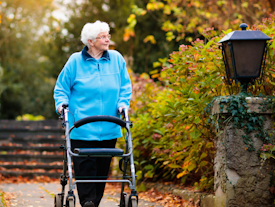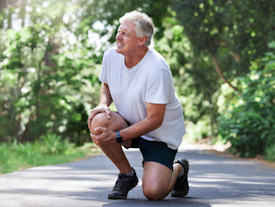Sudden Hip Pain And Inability To Walk: What To Do And When To Seek Help For Seniors
Sudden hip pain can be distressing, particularly when it restricts your ability to walk. Pain like this can disrupt your daily routine and reduce your quality of life, especially if the underlying cause isn't treated. Though it's scary, sudden hip pain isn't always severe. Learn how to identify hip pain, what might be causing it, how to deal with it, and when to seek medical attention to stay in good shape even when you can't walk.
Life Assure Product Quiz
Find The Perfect Medical Alert Device
Take our 30 second quiz and discover which Life Assure medical alert device is the right fit for you or a loved one.
Life Assure Product Quiz
Find The Perfect Medical Alert Device
Take our 30 second quiz and discover which Life Assure medical alert device is the right fit for you or a loved one.
What Does Sudden Hip Pain Mean For Seniors?
Sudden hip pain can result from several common issues in seniors, each requiring a unique approach to care. Osteoarthritis is a frequent offender, where the hip joint's cartilage wears down over time, leading to inflammation and stiffness that can suddenly worsen. Bursitis is another culprit, involving the painful swelling of the bursae, or the small sacs that cushion the hip joint, often causing sharp pain during movement. Fractures, particularly from falls or osteoporosis, are also a significant concern, as they can cause intense pain and require urgent medical attention.
Recognizing the early signs of these conditions is vital to prevent complications like reduced mobility or chronic discomfort. Be alert for ongoing pain in the hip or groin, swelling, and trouble moving the hip. If these symptoms appear, track their changes and consult a healthcare provider immediately to ensure appropriate treatment and maintain mobility.
Immediate Steps To Take When Experiencing Hip Pain
If sudden hip pain hits, acting quickly can help ease the pain and prevent further issues. First, stop any activity that might worsen the pain and find a comfortable resting position. This helps avoid additional strain and gives the hip a chance to recover.
Applying ice or heat can also be beneficial. Ice helps reduce swelling and numb sharp pain, especially when caused by an injury. Use an ice pack wrapped in a cloth on the hip for 15-20 minutes every hour as needed. For arthritis or muscle tension, heat can relax tight muscles. A warm compress or heating pad for 15-20 minutes can help ease discomfort.
Assessing The Severity Of The Pain
Knowing how severe the hip pain is will guide your next steps. If the pain is mild and improves with rest and home care, keep an eye on it for a few days. It may not be severe, like a minor strain or cramp, and could resolve without intervention.
However, if the pain is severe, doesn't go away, or comes with symptoms like bruising, swelling, difficulty moving the hip, or bearing weight, you must seek medical help immediately. This likely means the cause is something more severe. Having a doctor examine you and diagnose the issue will benefit healing and prevent things from worsening.
Seniors should be especially cautious if they experience sudden, intense pain after a fall, which might indicate a fracture or serious injury. In such cases, call emergency services or head to the nearest hospital as soon as possible to avoid complications.
Seeking Medical Help For Hip Pain
Getting professional medical advice is the best way to manage sudden hip pain effectively. A proper diagnosis will identify the cause and give you ideas for treatment. During a consultation, the healthcare provider will likely perform a physical exam and ask about the pain's onset, duration, and nature to narrow down the cause.
Diagnostic tests like X-rays or MRIs may be recommended to get a detailed view of the hip joint and surrounding tissues. These tests help rule out fractures and assess joint health, identifying conditions like arthritis or bursitis. Based on the findings, doctors can develop a treatment plan to best combat whatever is causing your pain.
Treatment Options For Sudden Hip Pain
Several treatment options are available for sudden hip pain, ranging from conservative methods to more invasive procedures. Depending on the pain's cause and severity, you might want to try some of these treatments:
Medication And Pain Management
Medications can help manage hip pain and reduce inflammation. Nonsteroidal anti-inflammatory drugs (NSAIDs) like ibuprofen or naproxen are effective for pain and swelling. More potent drugs or corticosteroid injections may also be prescribed for increased relief.
Over-the-counter pain relievers like acetaminophen can also help manage mild to moderate pain and are generally safe for short-term use. It's important to follow dosage instructions and consult a healthcare provider, especially if there are concerns about interactions with other medications.
Physical Therapy And Exercise
Physical therapy can significantly manage hip pain and improve mobility. A physical therapist can create a personalized exercise program to strengthen the muscles around the hip to improve flexibility and reduce pain. Gentle exercises such as leg lifts, hip stretches, and walking can help maintain mobility and prevent stiffness.
Consistent low-intensity exercises support joint health and may help prevent future episodes of hip pain. Performing exercises with correct form and slowly increasing intensity helps reduce the chance of injury.
Preventive Measures To Avoid Future Hip Pain
Taking preventive steps can significantly reduce the risk of future hip pain. Maintaining a healthy weight is a good start, as excess weight stresses the hip joints and leads to wear and tear. A balanced diet rich in calcium and vitamin D supports bone health and can prevent conditions like osteoporosis from occurring in the first place.
Staying active through regular exercise keeps the muscles around the hip strong and flexible. Walking, swimming, or cycling are low-impact and beneficial for joint health. Additionally, practicing good posture and using supportive footwear can alleviate unnecessary strain on the hips.
Conclusion
Addressing sudden hip pain promptly is one of the most important things seniors can do to maintain mobility and quality of life. Seniors experiencing sudden hip pain should act quickly to manage their symptoms and seek medical advice to ensure proper treatment. By following preventive measures like exercise and good nutrition, and staying informed about their health through regular doctor visits, Canadian seniors can continue to enjoy an active and fulfilling lifestyle even with the occasional bout of hip pain.











 Get Help With The Push Of A Button
Get Help With The Push Of A Button















